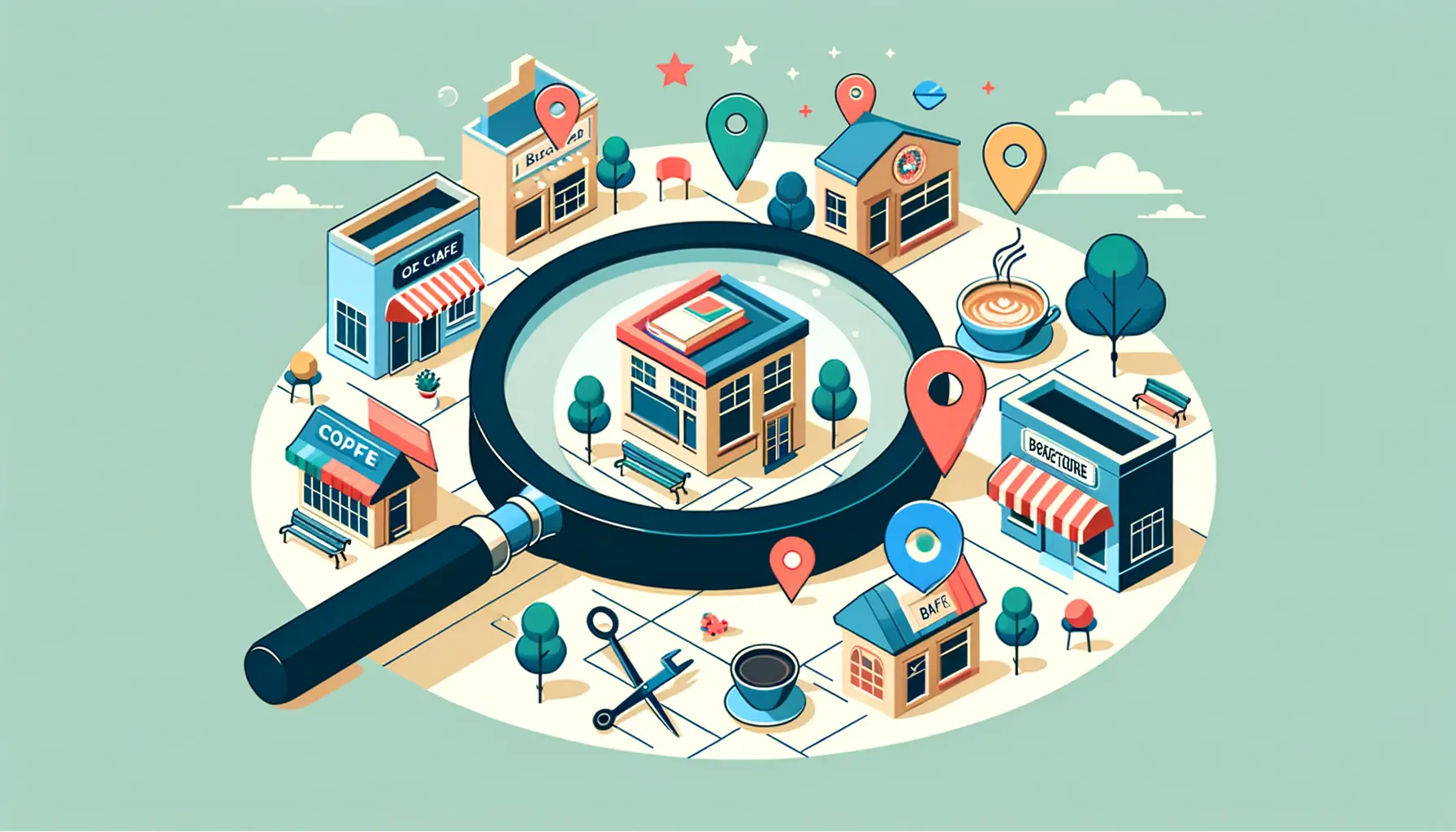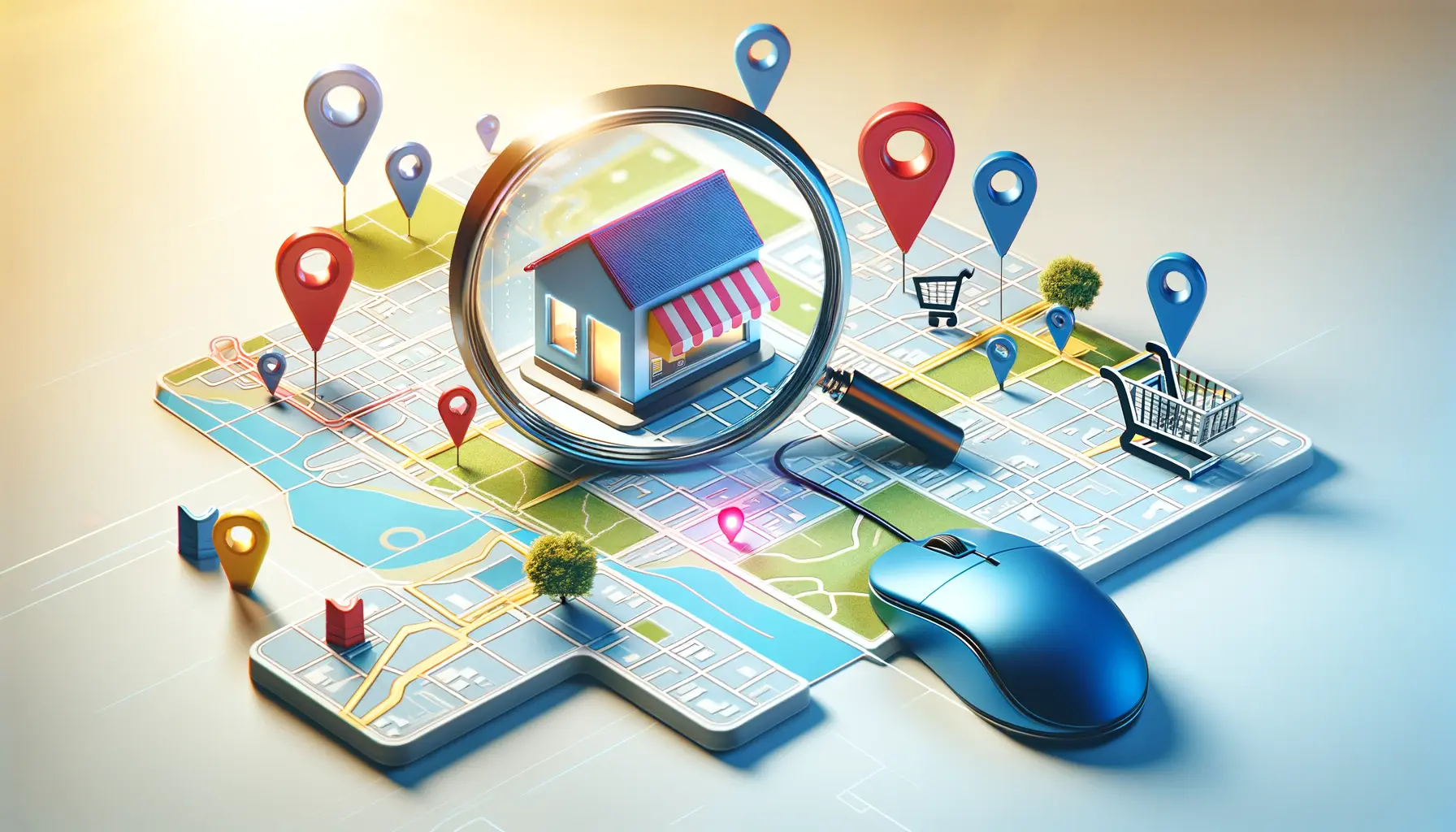Local SEO, a strategy pivotal for businesses aiming to capture the attention of a geographically targeted audience, has transcended its conventional boundaries.
Today, it’s not just businesses with physical storefronts that can benefit from local SEO; bloggers, too, can harness its power to significantly boost their online presence.
By optimizing their content for local search, bloggers can attract more readers from specific locations, thereby increasing their visibility, engagement, and authority in their niche.
Understanding the essence of local SEO and its application to blogging requires a shift in perspective.
Traditionally, local SEO focuses on optimizing a business’s online presence to appear in local search results for users in the vicinity.
However, when bloggers apply local SEO tactics, they tailor their content to include local keywords, events, and information, making their posts more relevant and discoverable to readers in specific areas.
This approach not only enhances the user experience by providing content that resonates with a local audience but also opens new avenues for bloggers to connect with local communities, businesses, and events.
- Understanding Local SEO for Blogging
- Implementing Local SEO on Your Blog
- Local Link Building for Bloggers
- Engaging with Local Audiences Through Social Media
- Optimizing Your Blog for Mobile Users
- Measuring and Analyzing Your Local SEO Efforts
- Building Community Engagement and Collaboration
- Empowering Your Blog with Local SEO: A Strategic Approach
- Local SEO for Bloggers: Frequently Asked Questions
Understanding Local SEO for Blogging
What is Local SEO?
At its core, Local SEO is about optimizing your online content to rank higher in search engine results for local queries.
This means when someone searches for a topic, product, or service in a specific area, your blog post or website appears among the top results.
For bloggers, this involves incorporating location-based keywords into their posts, tags, and meta descriptions, ensuring their content is easily discoverable by readers in specific locales.
Why is this important?
Because local searches lead to action.
Statistics show that a significant percentage of local mobile searches result in a visit to a store or a purchase within a day.
Translating this to blogging, a higher rank in local search results can lead to more site visits, increased engagement, and, ultimately, a stronger community of readers.
Benefits of Local SEO for Bloggers
Embracing local SEO can dramatically change the game for bloggers.
Firstly, it allows you to tap into a niche market by targeting readers based on their location, which can be particularly beneficial if your blog covers location-specific topics like local news, events, or businesses.
This targeted approach helps in attracting a dedicated readership that finds your content not just interesting but also relevant to their locale.
Moreover, local SEO can enhance your blog’s visibility and searchability, making it easier for your content to reach the right audience.
By focusing on local keywords and topics, you’re more likely to stand out in a crowded digital space, where generic, broad-spectrum SEO tactics can sometimes fall short.
This specificity not only boosts your search engine rankings but also increases the likelihood of partnerships with local businesses and collaborations with other local influencers, further expanding your blog’s reach and impact.
Incorporating local SEO strategies into your blogging routine is not just about improving search rankings; it’s about creating a more engaging and relevant experience for your readers, fostering a sense of community, and establishing your blog as a go-to resource for local information.
Implementing Local SEO on Your Blog
Integrating local SEO into your blog requires a strategic approach, focusing on content creation, keyword optimization, and engagement with local events and communities.
By following these steps, bloggers can enhance their local search visibility and connect more effectively with their target audience.
Keyword Research and Optimization
Identifying the right local keywords is the first step towards local SEO success.
These keywords should reflect the topics you cover and include specific geographical locations you’re targeting.
Use tools like Google Keyword Planner or local keyword research tools to find phrases that local audiences are searching for.
Once identified, incorporate these keywords naturally into your blog posts, titles, meta descriptions, and URLs.
- Focus on long-tail keywords that include local identifiers, such as “best vegan restaurants in Austin” or “Miami beach photography tips.”
- Use location tags in your blog posts and pages to signal search engines about the geographical relevance of your content.
Local Content Creation
Content that resonates with a local audience can significantly boost your blog’s relevance and engagement.
Writing about local events, reviewing local businesses, or creating guides specific to a location can attract local readers and encourage them to interact with your content.
- Create event round-ups for upcoming local events or festivals.
- Review local businesses or services relevant to your niche, providing valuable insights to your readers.
- Develop local guides, such as “Top 10 Hiking Trails near Seattle” or “A Foodie’s Guide to New Orleans,” to attract readers interested in local activities or cuisine.
Optimizing for Local Search
Beyond keyword optimization, several technical SEO practices can enhance your blog’s local search visibility.
Ensuring your blog is mobile-friendly, fast-loading, and easily navigable can improve user experience and search engine rankings.
Additionally, optimizing for “near me” searches by including phrases like “near me” or “close by” in your content and meta tags can further boost your local SEO efforts.
- Ensure your blog is responsive and mobile-optimized, as a significant portion of local searches are performed on mobile devices.
- Incorporate schema markup for local businesses on your blog to provide search engines with detailed information about the local relevance of your content.
Engaging with your local community through content and SEO practices not only enhances your blog’s search visibility but also builds a loyal readership that values your insights and recommendations on local matters.
Local Link Building for Bloggers
Link building is a crucial component of SEO, including local SEO.
For bloggers, acquiring links from reputable local sources can signal to search engines that your content is valuable and relevant to local audiences.
This process involves strategic outreach and networking within your local community to get your blog mentioned and linked to from local businesses, event pages, and other local resources.
Strategies for Building Local Links
Effective local link-building strategies can vary, but the goal remains the same: to increase your blog’s visibility and authority in local search results.
Here are some practical ways to build local links:
- Partner with local businesses for guest blogging opportunities. Writing a guest post for a local business blog can lead to a valuable backlink to your site.
- Get involved in local events, either by sponsoring, participating, or covering them on your blog. Event organizers are often willing to link back to sponsors or media that contribute to the event’s success.
- Utilize local directories and listings. Ensure your blog is listed in local business directories, community portals, and event listings with a link back to your site.
Networking and Community Engagement
Building relationships within your local community can lead to organic link-building opportunities.
Attend local meetups, seminars, and workshops related to your blog’s niche.
Networking with local business owners, event organizers, and fellow bloggers can result in mutual link exchanges and collaborations that benefit all parties involved.
- Engage with local businesses on social media and through your blog content. Highlighting local businesses or events can prompt them to share your content, linking back to your blog.
- Offer to write testimonials for local services or products you’ve used. Businesses often publish testimonials on their websites with a link back to the author’s site.
Remember, the quality of links matters more than quantity. Focus on building relationships and providing value to your local community, and the links will follow.
Engaging with Local Audiences Through Social Media
For bloggers, social media offers a powerful platform to enhance local SEO efforts by directly engaging with local audiences.
Utilizing social media to promote your locally optimized content can drive traffic to your blog, increase local brand awareness, and foster community engagement.
The key is to use social media strategically to connect with local readers and amplify your blog’s reach in specific geographical areas.
Strategies for leveraging social media for local engagement involve more than just posting links to your blog.
It’s about creating a dialogue, sharing valuable local content, and participating in local conversations.
Here’s how to make the most of social media for local SEO:
- Use local hashtags on platforms like Instagram and Twitter to increase the visibility of your posts to local audiences. Hashtags like #NYCFoodie or #SeattleArt can help locals discover your content.
- Tag local businesses, landmarks, and events in your posts to show up in searches related to those entities. This not only increases your visibility but also encourages those businesses to engage with and share your content.
- Participate in local groups and forums on platforms like Facebook and LinkedIn. Sharing your content in these groups can drive targeted local traffic to your blog.
Creating Localized Content for Social Media
While sharing your blog posts on social media is essential, creating content specifically for these platforms can further engage local audiences.
This might include:
- Short videos or live streams covering local events or reviewing local businesses.
- Photo galleries of local landmarks, events, or products from local businesses.
- Interactive polls or questions about local preferences, experiences, or recommendations.
By focusing on content that resonates with local interests and experiences, you can build a stronger connection with your audience.
This engagement signals to search engines the local relevance of your content, supporting your overall local SEO strategy.
True engagement comes from genuine interactions. Respond to comments, participate in local conversations, and be an active member of your local online community. This approach not only boosts your local SEO but also builds lasting relationships with your readers.
Optimizing Your Blog for Mobile Users
In today’s digital landscape, mobile optimization is non-negotiable, especially when targeting local audiences.
A significant portion of local searches comes from mobile devices, with users looking for information on the go.
Ensuring your blog is mobile-friendly not only improves user experience but also boosts your local SEO, as search engines favor mobile-optimized sites in their rankings.
To effectively optimize your blog for mobile users, consider the following strategies:
- Implement a responsive design that automatically adjusts your blog’s layout to fit the screen size of various devices. This ensures that your content is easily readable and navigable on smartphones and tablets.
- Improve page loading speed by optimizing images, leveraging browser caching, and minimizing code. Mobile users expect quick access to information, and slow-loading pages can lead to higher bounce rates.
- Make navigation simple and intuitive. Large, easy-to-click buttons and a clear, concise menu can help mobile users find what they’re looking for without frustration.
Localizing Content for Mobile Users
Mobile users often search for local information, making it crucial to localize your content for this audience.
Here are some tips to ensure your blog meets the needs of mobile users seeking local insights:
- Incorporate location-based keywords in your content, titles, and meta descriptions to improve visibility in local search results on mobile devices.
- Use Google My Business to claim your blog as a local business, providing mobile users with easy access to your location, contact information, and hours of operation, if applicable.
- Include interactive maps and directions in your blog posts when mentioning local places or events, making it easier for mobile users to find these locations.
By optimizing your blog for mobile users and localizing your content, you can significantly enhance your local SEO efforts.
This not only improves your visibility in local search results but also provides a better experience for your readers, encouraging them to engage with your content and visit your blog more frequently.
Featured info: Mobile optimization is a cornerstone of effective local SEO. A mobile-friendly blog is more likely to rank higher in local search results, attracting more local readers and boosting engagement.
Measuring and Analyzing Your Local SEO Efforts
To ensure the effectiveness of your local SEO strategies, it’s crucial to measure and analyze your efforts regularly.
This process involves tracking your blog’s performance in local search results, understanding how local audiences engage with your content, and identifying areas for improvement.
By leveraging the right tools and metrics, bloggers can gain valuable insights into their local SEO success and make data-driven decisions to enhance their visibility and engagement with local readers.
Key metrics and tools for measuring local SEO performance include:
- Google Analytics: Use Google Analytics to track your blog’s overall traffic, with a focus on visitors from your target local areas. Pay attention to metrics like page views, bounce rate, and session duration to understand how local readers interact with your content.
- Google Search Console: This tool provides insights into how your blog appears in search results. Monitor your performance in local search queries and track your rankings for specific local keywords.
- Local Keyword Rankings: Use SEO tools to track your rankings for targeted local keywords over time. This will help you gauge the effectiveness of your keyword optimization efforts.
Adjusting Your Strategies Based on Data
With the data gathered from these tools, you can make informed adjustments to your local SEO strategies.
For example, if you notice that certain local keywords are driving more traffic than others, you might focus more on those keywords in future content.
Similarly, if you find that local readers are particularly interested in certain types of posts, such as local event round-ups or reviews of local businesses, consider producing more of that content to engage your audience further.
- Analyze user engagement metrics to identify the types of content that resonate most with your local audience. This can inform your content strategy, helping you create more engaging and relevant posts.
- Review backlink profiles to assess the quality and relevance of sites linking to your blog. Seek opportunities to gain more high-quality local backlinks to improve your authority and rankings.
- Monitor social media engagement for insights into how local audiences interact with your content on social platforms. Use this information to refine your social media strategy for better local reach and engagement.
By continuously measuring and analyzing your local SEO efforts, you can fine-tune your strategies to better target and engage local audiences.
This ongoing process not only helps improve your blog’s visibility in local search results but also enhances the overall experience for your readers, fostering a loyal and engaged local community around your blog.
Your idea: Regular analysis of your local SEO performance is essential for understanding the impact of your strategies and making necessary adjustments. Stay agile and responsive to data insights to maximize your blog’s local search visibility and reader engagement.
Building Community Engagement and Collaboration
At the heart of successful local SEO for bloggers lies the ability to engage and collaborate with the local community.
Beyond optimizing for search engines, true local SEO success is achieved when bloggers manage to become a part of the local fabric, contributing to and benefiting from the community they serve.
This involves engaging with local readers, businesses, and influencers in meaningful ways that foster a sense of belonging and mutual support.
Community engagement and collaboration can take many forms, each offering unique benefits to bloggers looking to enhance their local SEO:
- Collaborate with Local Businesses: Partnering with local businesses for sponsored posts, joint events, or content swaps can increase your visibility among local audiences. These collaborations often lead to backlinks and social media mentions, further boosting your local SEO.
- Participate in Local Events: Whether it’s hosting a workshop, speaking at a local meetup, or covering local events on your blog, active participation in community events can significantly raise your profile and establish your blog as a local authority.
- Engage with Local Influencers: Connecting with local influencers for collaborations or features can tap into their follower base, expanding your reach within the local community. Mutual promotions or guest blogging opportunities are excellent ways to leverage influencer relationships for local SEO gains.
Creating a Local Engagement Strategy
Developing a strategy for local community engagement involves identifying opportunities for collaboration, understanding the needs and interests of your local audience, and consistently providing value through your content and interactions.
Here are some steps to create an effective local engagement strategy:
- Identify key local businesses, events, and influencers that align with your blog’s niche and values. Reach out with personalized proposals for collaboration that highlight mutual benefits.
- Utilize social media to engage with local followers actively. Share local news, promote local events, and participate in conversations relevant to your community.
- Offer to contribute to local publications or community blogs. This can help establish your authority and bring your blog to the attention of a wider local audience.
By prioritizing community engagement and collaboration, bloggers can enhance their local SEO while building meaningful connections within their community.
This approach not only improves your blog’s visibility and search rankings but also enriches your content with local relevance and authenticity, making your blog a cherished resource for local readers.
Engaging with your local community isn’t just about improving SEO; it’s about building relationships and becoming an integral part of the local ecosystem. This holistic approach to local SEO fosters genuine connections and sustainable growth for your blog.
Empowering Your Blog with Local SEO: A Strategic Approach
As we’ve navigated through the intricacies of local SEO for bloggers, it’s clear that this strategy is not just about enhancing online visibility; it’s about fostering a deep connection with your local community.
By integrating local SEO practices, bloggers can transform their platforms into vibrant hubs of local information, discussion, and engagement.
This approach not only boosts your blog’s presence in local search results but also establishes it as a trusted resource for local readers seeking insightful, relevant content.
Key Takeaways for Local SEO Success
Incorporating local SEO into your blogging strategy requires a multifaceted approach, encompassing everything from keyword optimization to community engagement.
Here are the key takeaways to guide you on this journey:
- Start with thorough keyword research to identify local terms that resonate with your target audience, ensuring your content is discoverable by those seeking local insights.
- Create content that speaks directly to local interests and needs, from event round-ups to reviews of local businesses, to engage readers and encourage community interaction.
- Build local links through collaborations with businesses and participation in community events, enhancing your blog’s authority and relevance in local search results.
- Leverage social media to connect with local audiences, using platforms to promote your content, participate in local conversations, and amplify your reach within the community.
- Optimize your blog for mobile users, recognizing the significant role of mobile searches in local SEO and ensuring a seamless experience for readers on the go.
- Regularly measure and analyze your local SEO efforts, using data to refine your strategies and better target your local audience.
- Engage in meaningful collaborations and foster community relationships, positioning your blog as an integral part of the local ecosystem.
By embracing these strategies, bloggers can effectively harness the power of local SEO to not only improve their search engine rankings but also to create a more engaging, relevant, and valuable resource for their local readers.
This holistic approach to local SEO transcends mere technical optimization, embodying a commitment to serving and contributing to your local community.
Looking Ahead: The Future of Local SEO for Bloggers
The landscape of local SEO is ever-evolving, with search engines continually refining their algorithms to better serve users’ local search needs.
For bloggers, staying ahead in this dynamic environment means continuously adapting strategies, exploring new technologies, and deepening community ties.
As voice search and mobile usage continue to rise, optimizing for these trends will become increasingly important, offering new opportunities to connect with local audiences in meaningful ways.
In conclusion, local SEO for bloggers is much more than a set of optimization techniques; it’s a strategic approach to building a loyal local readership by providing value, fostering connections, and engaging with the community on a deeper level.
By prioritizing local relevance and engagement, bloggers can not only achieve better search rankings but also make a lasting impact on their local community, one post at a time.
Want your website to top Google search rankings? Leave the SEO to our professional agency!
Local SEO for Bloggers: Frequently Asked Questions
Delving into the realm of local SEO for bloggers raises numerous questions. Here, we address some of the most common inquiries to shed light on how bloggers can effectively leverage local SEO strategies to enhance their online presence and connect with their local audience.
Local SEO for bloggers involves optimizing blog content to rank higher in local search results, making it easier for local audiences to discover their posts.
While organic SEO focuses on improving rankings globally, local SEO targets specific geographic areas to attract a local audience.
Yes, blogging can significantly enhance local SEO by incorporating local keywords and covering topics relevant to a specific area or community.
Bloggers should create content that resonates with local interests, such as reviews of local businesses, guides to local events, and stories about local culture.
Local keywords are crucial as they help search engines understand the geographical relevance of your content, improving visibility in local search results.
Definitely. Engaging with local audiences on social media can drive traffic to your blog and improve your visibility in local search results.
Bloggers can measure local SEO success by tracking local keyword rankings, analyzing traffic from local audiences, and monitoring engagement on local content.
With the majority of local searches conducted on mobile devices, ensuring your blog is mobile-friendly is essential for reaching local audiences effectively.












